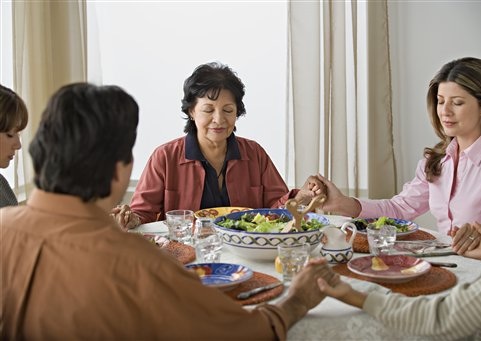A Heritage Foundation study has found that the American family is in trouble.
On Tuesday, the Heritage Foundation and National Review Institute co-hosted an event called Strengthening Society: What Progress on Life Can Teach us for Challenges Facing the Family.
The event followed the release of the Heritage Foundation’s 2014 Index of Culture and Opportunity, a 10-year study that tracked indicators relating to an individual’s success, opportunity, and freedom. The study presented data for economic and social trends, and rated whether the United States is heading in the right direction for each indicator.
Cultural indicators in the study—the marriage rate, fertility rate, and single parent household rates—are all categorized as on the "wrong track."
The panel said the positive shift of society toward the pro-life view could be analyzed to move other cultural indicators, such as marriage, to the "right track."
The panel said culture is becoming more pro-life through technology advancement, an increase in pregnancy centers, ultrasound availability, and positive stories and messages on social media. Abortions are at their lowest rate since 1973.
However, when it comes to marriage, there has been no policy success. The United States has seen a 50 percent decline since the 1960s and a 22.8 percent decline just in the last decade. According to the index, the breakdown of marriage has weakened the social fabric of society and increased government dependence.
"Marriage is still the gold standard for young people, but there is a disconnect in their reality because of doubts of divorce. They’re not sure if they will be committed for life and are therefore de-coupling marriage and parenthood. Young people don’t want to fail at marriage so they try it out first by living together," said Heritage Foundation spokesperson Christine Kim.
The goal is to convince young people, who generally aspire to marry, to actually make that commitment.
The panel, which included representatives from the Charlotte Lozier Institute, American Enterprise Institute, and Save the Storks, emphasized the need to find ways to make life-long marriage more appealing.
The organizations presented ideas such as having a media strategy to target certain groups with hopeful marriage messages. Additionally, they suggested organizations teach marriage skills to train the next generation, since the skills are "no longer being passed down" from their parents.
More federal economic incentives could be put in place, especially for the working class. Churches could strengthen young adults struggling with marriage difficulties, provide marriage role models, and perhaps offer childcare for working families.
The panel emphasized that the institution of marriage creates families, and families create a stronger, freer society. The panel agreed that a turn in a new direction for marriage is impossible unless it is addressed in policy, civic, and cultural dimensions.
